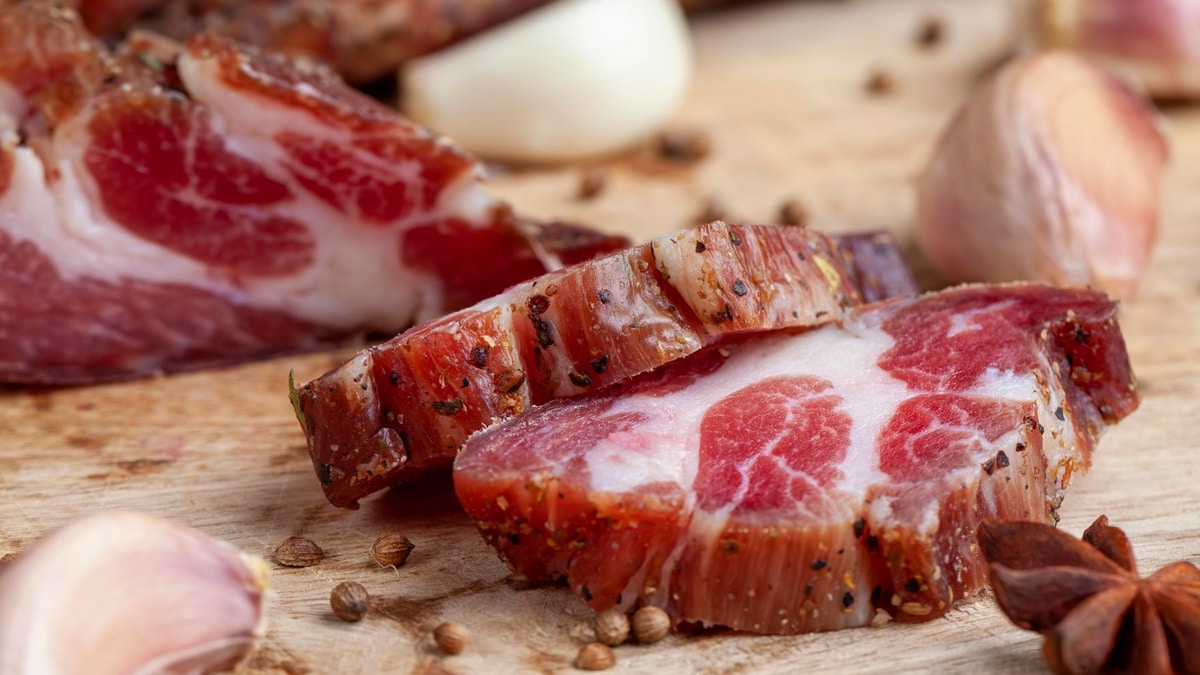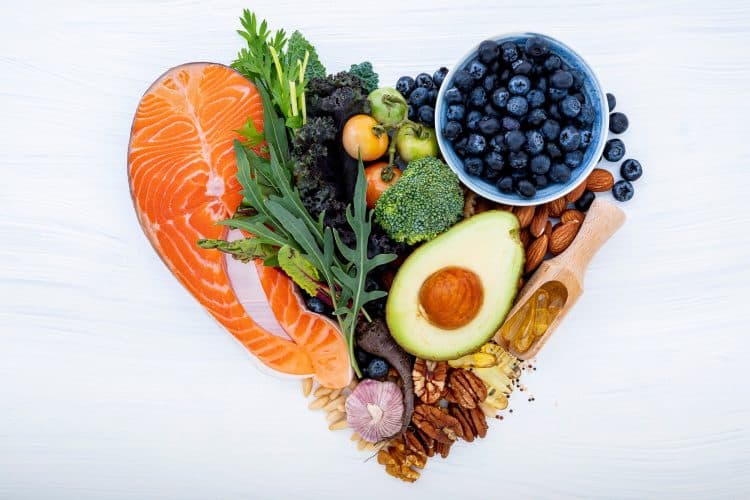Fat fasting, also known as a fat fast, is a controversial diet that involves consuming high amounts of fat and limiting carbohydrate and protein intake for a short period. This period typically ranges between 3–5 days. Fat fasting proponents claim that it helps with weight loss, improves blood sugar, and boosts energy levels.
Notably, the effectiveness and safety of this diet need to be better established, and there are potential drawbacks and risks to consider.
Before you embark on a fat fast, you must consult your doctor or a registered dietician to ensure it is the right program for you. In this article, we shall explore the potential benefits and risks of fat fasting and provide tips and guidelines for those who want to try it. You should approach this diet cautiously and be mindful of its potentially negative consequences for your health and well-being.
Will This Break Your Fast?
Find out if coffee, tea, sweeteners, and other drinks break your fast based on your specific fasting goals.
Check What Breaks My Fast →What is Fat Fasting?
Fat fasting is a more intense form of the ketogenic diet where the food you consume has around 65–90% fat, 10–30% protein, and under 5% carbs.
A fat fast is not technically a fast. With a traditional fast, you do not consume anything during the fasting window and only eat during the feeding window. With fat fasting, you are not keeping yourself away from eating. Instead, you consume foods that assist your body in entering ketosis. A fat fast increases the level of ketone molecules in your blood, sending your body into ketosis within a day. People consider fat fasting when their standard ketogenic diet has stopped giving them weight loss benefits. [1] [2]
Fat Fasting: Facts to Consider
Fat fasting is a relatively new and controversial diet trend. There is limited research on the safety and effectiveness of fat fasting, and most health professionals caution against it because it can be unsustainable and unhealthy in the long run.
What Do You Do in a Fat Fast?
During a fat fast, you consume a meager amount of carbs and a high amount of fat. It typically involves eating eggs, cheese, nuts, avocados, and oils. You must choose high-quality, nutrient-dense fat sources instead of processed and unhealthy fats. Some people also include tiny amounts of protein in a fat fast.
When Should You Start Fat Fasting?
Some dieters experiment with a fat fast when they hit a weight loss plateau on a conventional ketogenic diet. A fat fast typically lasts 2–5 days, where you eat 1,000–1,200 calories daily, and 80–90% of your nutrition will be from fat. [2] [3]
When Should You Not Fat Fast?
Fat fasting is not for everybody. People with the following health conditions should abstain from fat fasting:
- Diabetes (either type 1 or type 2)
- Chronic heart disease
- Endocrine-related conditions
- Eating disorders
How Does a Fat Fast Help You Lose Weight?
Dr. Atkins’ New Diet Revolution introduced fat fasting. With a fat fast, the absence of carbohydrates and proteins will induce your body to deplete your glycogen reserves much quicker, allowing your body to use fat reserves as fuel. Fat fasting forces your body through lipolysis, where fat stores burn quickly.
A study was conducted to compare the effects of fasting after a high-fat and high-carbohydrate diet on rats, indicating the high-fat group had more significant weight loss. [4]
Lipolysis breaks down fat, where triglycerides are broken down into free fatty acids and glycerol. However, body fat distribution and total body fat storage also depend on genetic factors. [5]
Longer the fast, the more the release of free fatty acids. It is important because the liver uses these fatty acids to create ketone bodies for use as a fuel source.
Lipolysis cannot happen with a high amount of glucose in the body. However, with a fat fast, where 80–90% of your ingested nutrition comes from fat sources, you need not worry about excess carbs and proteins that convert to glucose.
However, there were deliberations on studying the gluconeogenesis of fat, and a study conducted on the same could not produce much evidence. [6]
Benefits of Fat Fasting
Fat fasting can be considered an advanced version of the keto diet. A fat fast needs you to avoid calories, carbs, and proteins more than the conventional keto diet.
The benefits of a keto diet can be seen if you follow the recommended eating and fasting schedule for 2-5 days. These benefits are:
Quick Weight Loss
Rapid weight loss is one of the primary benefits of fat fasting. Reducing your calorie and carbohydrate intake will result in weight loss and decrease body fat and water weight.
Blast Through the Weight Loss Plateau
You should switch to fat fasting if you do not experience any weight loss for two weeks or more on a keto diet. It can help increase the number of ketones in your blood, which deplete your body’s fat reserves, converting them into energy and helping you get past the plateau.
Increase Ketone Levels In Your Body
Irrespective of whether you are trying to reach an advanced stage of ketosis or transitioning to the state of ketosis, fat fasting will help you get there. Fat fasting is one of the quickest ways to increase ketone levels in your body.
How To Fat Fast The Right Way
There is no one “right” way to fat fast, as this trend is not well established and is not recommended by most registered dieticians. If you decide to try a fat fast, it is essential to approach it cautiously and be aware of the potential risks and drawbacks. Here are some tips for fat fasting the right way:
Consult a Healthcare Professional
It is essential to get the opinion of a healthcare professional before embarking on a fat fast. A fat fast can be a very restrictive and risky diet. A dietician can help you determine if it is appropriate for you and also guide how to do it safely.
Choose High-Quality, Nutrient-Dense Fat Sources
Rather than relying on processed and unhealthy fats, you should choose fat sources rich in nutrients, like nuts, avocados, and olive oil.
Stay Hydrated and Get Enough Electrolytes
It is essential to stay hydrated during a fat fast and get enough electrolytes like sodium, potassium, and magnesium. You can find these in foods like broth, coconut water, and mineral-rich salt.
Do Not Extend The Fast
Fat fasting is typically only for a short period, usually 3-5 days. It is not intended to be a long-term eating schedule.
Be Prepared For Potential Side Effects
Some people may experience fat fasting side effects like dizziness, headaches, irritability, and fatigue. You must stop the diet if these side effects become severe.
What Foods To Eat During Fat Fasting
These foods are high in fat and nutrition and will keep you from feeling hungry during fasting:
- High-fat meats: You can choose bacon, sardines, or salmon for high-fat meats.
- Eggs: Whole egg or egg yolks are high in fat and are easy to consume while fat fasting.
- Oils and high-fat spreads: Coconut oil, mayonnaise, olive oil, and avocado oil are healthier oils and suitable for a high-fat diet.
- Low-carb vegetables and high-fat fruits: You can go for avocados, olives, and non-starchy vegetables like kale, spinach, and zucchini cooked in fat.
- High-fat nuts and nut butter: Macadamia nuts, Macadamia nut butter, and peanut butter are some options.
- High-fat dairy: Butter, cream cheese, heavy cream, and high-fat cheese like brie are high-fat dairy options that you can consume in multiple ways.
- High-fat, non-dairy products: Full-fat coconut milk and coconut cream can be used while fat fasting if you do not like dairy products.
- Drinks: Water, tea, coffee, and sparkling water can all be consumed in the fasting window as long as these do not have calories.
What Foods To Avoid During Fat Fasting
Here is a list of foods you should avoid on a fat fast. These foods are high in carbohydrates and protein and will hamper your progression into the ketogenic state:
- Cereals and grains: Bread, pasta, crackers, cereal, oats, rice, etc.
- Beans and pulses: High-protein lentils, black beans, butter beans, etc.
- Fruits and vegetables: You should avoid all fruits and veggies except those listed above.
- Low-fat dairy foods: Skim milk, low-fat cheese, low-fat yogurt, etc., do not serve the purpose of a high-fat diet.
- Low-fat meats and fish: Chicken, beef, lamb, cod, etc., can be switched to high-fat foods.
- Cakes and confectionaries: Sweets, biscuits, cakes, chocolate pastries, etc., all have saturated or trans fats and are not good for health.
- Sweet drinks: Avoid juice, energy drinks, and sweetened coffee while fasting.
Is Fat Fasting Healthy?
Fat fasting is not a long-term weight loss solution or a healthy diet. Although it may help you lose weight in the short term, it is difficult to stick to and may not provide all the nutrients your body needs for optimal functioning.
A study was conducted to see the effects of low carbohydrate intake and showed a transient reduction in total energy expenditure and weight loss, which increased after 2.5 weeks.[7]
Some potential risks are also associated with fat fasting, including increased cholesterol levels and heart disease risk. If you are suffering from any disease and taking medications for it, please consult your doctor, who can help you determine if a fat fast is a good option.
Side Effects and Risks of Fat Fasting
Some side effects and risks of fat fasting are enumerated below. However, it is equally important to note that everyone does not experience these effects.
Nutrient Deficiencies
Because fat fasting involves consuming very few carbs, it may be difficult to get enough nutrients, such as fiber and certain vitamins and minerals found in fruits, veggies, and whole grains. Over time, it can lead to nutrient deficiencies.
Increased Cholesterol Levels
High-fat and low-carb diets like fat fasting may increase cholesterol levels, which can increase the chances of heart disease.
Constipation
Because the fat fast diet involves low amounts of fiber, it can increase the chances of constipation.
Keto Flu
When the body switches from burning carbs to burning fat for fuel, some people may experience keto flu. The keto flu symptoms include headaches, nausea, fatigue, and muscle cramps.
Inability to do Extensive Workouts
When you are on a fat fast, your body is depleted of energy and will not be able to keep up with the rigors of high-intensity workouts. You should stick to low-intensity and short workouts so that you are not physically overwhelmed.
Frequently Asked Questions
What should I do after going on a fat fast?
When on a fat fast, ensure that you consume 1,000-1,200 calories daily, with each meal consisting of 200–300 calories. Stick to natural, high-fat food sources and avoid carbohydrates and proteins. Remember that this fast is only meant for 2 to 5 days.
Can fat fasting lead to muscle loss?
Fat fasting can lead to muscle loss, especially if it is not done in a healthy and balanced way. When the body is in ketosis, it will break down proteins, including muscle protein, to use as a fuel source.
Are there certain beverages that should be consumed during the fasting period?
You can consume sparkling water, unsweetened tea, or coffee while on a fat fast. These will help keep you going without adding calories.
Who benefits the most from fat fasting?
People already on a keto diet and experiencing a weight loss plateau will benefit the most from fat fasting.
Are there certain medical conditions where fat fasting should be avoided?
People with diabetes, heart conditions, endocrine-related disorders, or eating disorders should abstain from fat fasting.
Final Words
Fat fasting is a relatively new fat loss method. It is ideal for those already on the keto diet who have hit a weight loss plateau. You should consume only natural and high-fat foods on this diet. A fat fast should not last for more than five days.
At the same time, this diet is not for everyone, and people suffering from certain health issues are advised to avoid it. Consulting your doctor or a healthcare professional will enable you to decide if this hot new diet plan is for you.
Learn more about fasting
- Fasting Electrolyte Calculator - Sodium, Potassium, Magnesium
- PSMF Calculator - Protein Sparing Modified Fast
- Fasting Schedule Generator - Build Your Plan
- Ketosis Calculator - When Do You Enter Ketosis?
- Metabolic Switching Calculator - Fat Burning Timeline
- 5:2 Diet Calculator - Fast Day Calories
- IF Macro Calculator - Intermittent Fasting Macros
- Live Fasting Timer - Track Your Fast in Real Time
References
Fitness Volt is committed to providing our readers with science-based information. We use only credible and peer-reviewed sources to support the information we share in our articles.
- Metabolics & Weight Loss, Dr. Simonds. “Feeling Stuck on Keto? Try a Fat Fast! – Dr. Simonds.” Dr. Simonds, 21 Sept. 2021, simondsmetabolics.com/2021/09/21/feeling-stuck-on-keto-try-a-fat-fast.
- “Ketogenic Diet for Obesity: Friend or Foe? – PubMed.” PubMed, 19 Feb. 2014, pubmed.ncbi.nlm.nih.gov/24557522.
- Dowis, Kathryn, and Simran Banga. “The Potential Health Benefits of the Ketogenic Diet: A Narrative Review.” PubMed Central (PMC), 13 May 2021, www.ncbi.nlm.nih.gov/pmc/articles/PMC8153354.
- Suzuki, Hiroo, et al. “Effects of Previous Feeding of a High Carbohydrate or a High Fat Diet on Changes in Body Weight and Body Composition of Fasted Rats.” OUP Academic, 1 Jan. 1975, academic.oup.com/jn/article/105/1/90/4768601.
- Kulyté, Agné, et al. “Shared Genetic Loci for Body Fat Storage and Adipocyte Lipolysis in Humans.” PubMed Central (PMC), 7 Mar. 2022, www.ncbi.nlm.nih.gov/pmc/articles/PMC8901764.
- Hawley, Estelle E., et al. “Possibility of Gluconeogenesis From Fat: II. the Effect of High Fat Diets on the Respiratory Metabolism and Ketosis of Man.” OUP Academic, 1 Nov. 1933, academic.oup.com/jn/article/6/6/523/4726080.
- Ludwig, David S., et al. “Do Lower-Carbohydrate Diets Increase Total Energy Expenditure? An Updated and Reanalyzed Meta-Analysis of 29 Controlled-Feeding Studies.” OUP Academic, 1 Mar. 2021, academic.oup.com/jn/article/151/3/482/6020167.
Tip: If you're signed in to Google, tap Follow.













